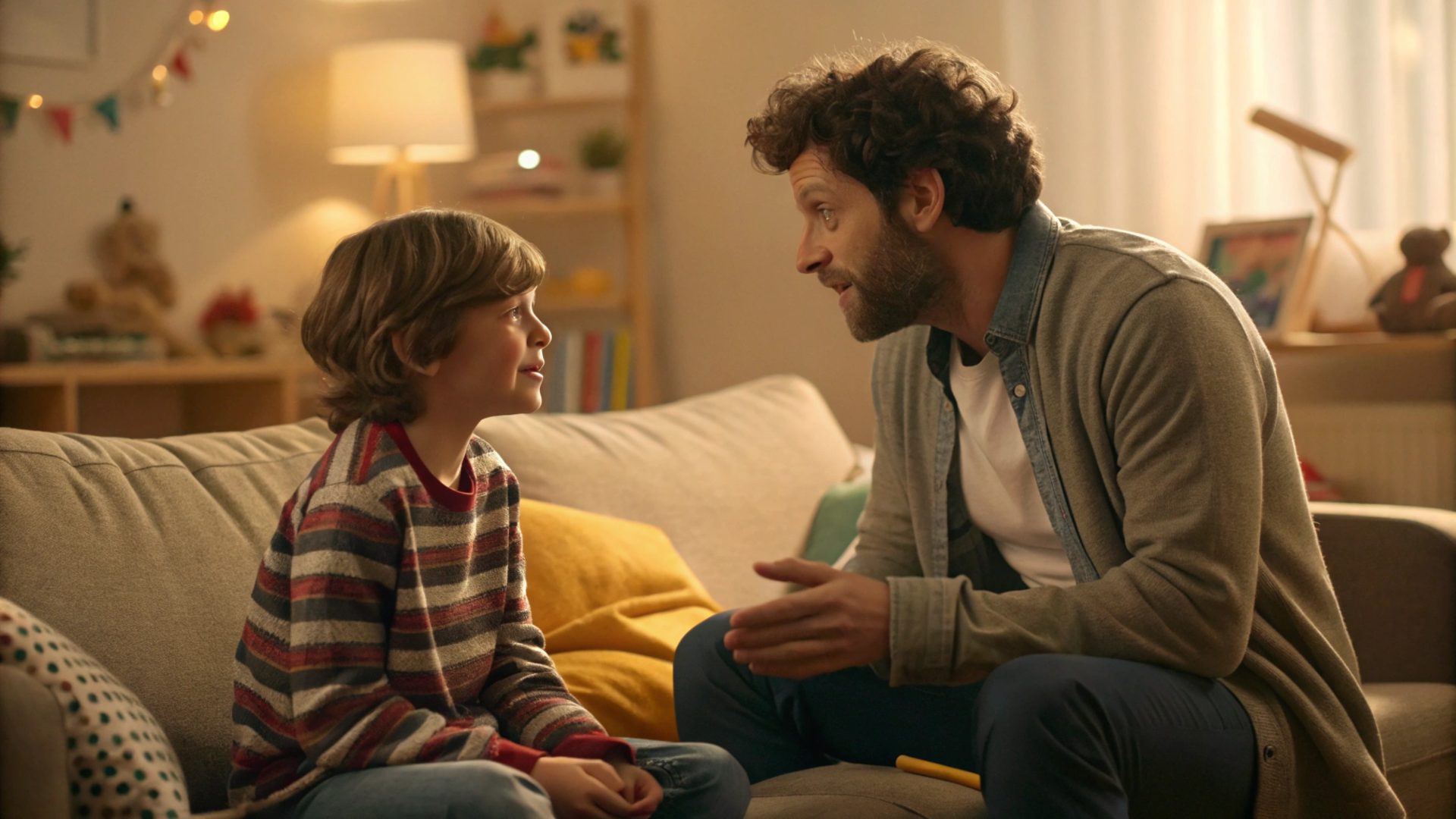First of all, let me just say—welcome to the wild, wonderful, and sometimes overwhelming world of parenting.
Whether you’re knee-deep in diaper changes or just trying to figure out how to get your little one to sleep through the night, I want you to know you’re doing great. Seriously.
Now, let’s talk about something that might be on your mind: authoritarian parenting. Maybe you’ve heard the term thrown around in parenting forums or books, and you’re wondering, “Is this me? Is this what I’m doing?” Or maybe you’re just curious about what it means and how it might affect your child.
Either way, I’m here to share some insights, personal stories, and practical tips to help you navigate this parenting style—or avoid it altogether.
What Is Authoritarian Parenting?
Let’s start with the basics. Authoritarian parenting is a style characterized by high demands and low responsiveness. It’s the “my way or the highway” approach.
Rules are strict, expectations are high, and there’s often little room for negotiation or emotional connection. Think of it as the parenting equivalent of a drill sergeant.
Now, I’ll be honest—I’ve had moments where I’ve leaned into this style. Like the time my toddler threw a full-blown tantrum in the grocery store because I wouldn’t buy him a candy bar. In that moment, I was tempted to lay down the law: “No means no, and that’s final!”
But as I stood there, surrounded by judgmental stares and a screaming child, I realized something: authoritarian parenting might get short-term compliance, but it doesn’t build trust or understanding.
The Pros and Cons of Authoritarian Parenting
Let’s break it down.
The Pros:
- Clear boundaries: Kids know exactly what’s expected of them.
- Structure: A predictable environment can feel safe for some children.
- Quick results: When you say “jump,” they’ll likely ask “how high?”
The Cons:
- Lack of emotional connection: Kids may feel unheard or unloved.
- Fear-based compliance: They obey out of fear, not respect.
- Rebellion: Strict rules can lead to power struggles or secretive behavior.
I remember my own childhood, growing up with a parent who was very authoritarian.
While I turned out okay (I think!), I also remember feeling like I couldn’t make mistakes or express my feelings without fear of punishment.
That’s not the kind of relationship I want with my kids.
How to Spot Authoritarian Tendencies in Yourself

Here’s the thing: most of us don’t set out to be authoritarian parents. It often creeps in when we’re stressed, overwhelmed, or just trying to keep things under control. So, how do you know if you’re leaning too far in this direction? Ask yourself:
- Do I often use phrases like “because I said so” or “end of discussion”?
- Do I prioritize obedience over understanding?
- Do I struggle to empathize with my child’s emotions?
If you answered yes to any of these, don’t panic. Recognizing the tendency is the first step toward change.
Practical Tips for Finding Balance
Okay, let’s get actionable. Here are some tips to help you move away from authoritarian parenting and toward a more balanced approach:
1. Listen First, React Second
When your child is upset or acting out, take a deep breath and listen. Instead of immediately enforcing a rule, try saying, “I can see you’re really upset.
Can you tell me why?” This simple shift can help your child feel heard and valued.
2. Explain the “Why” Behind Rules
Kids are naturally curious, and they’re more likely to follow rules if they understand the reasoning behind them.
For example, instead of saying, “No cookies before dinner,” try, “We eat dinner first so our bodies get the nutrients they need. Then we can have a cookie for dessert.”
3. Offer Choices Within Limits
Giving your child some control can reduce power struggles. For instance, instead of saying, “Put on your shoes now,” try, “Do you want to wear the red shoes or the blue shoes?”
4. Practice Empathy
Put yourself in your child’s shoes. Remember, they’re still learning how to navigate the world.
When they make a mistake, respond with compassion rather than criticism.
5. Model the Behavior You Want to See
Kids are like sponges—they absorb everything we do. If you want them to be kind, patient, and respectful, show them how it’s done.
A Personal Story: Learning to Let Go
Let me share a moment that changed my perspective. A few months ago, my 4-year-old refused to clean up his toys.
My first instinct was to lay down the law: “Clean up now, or no TV for a week!” But instead, I took a step back and asked him why he didn’t want to clean up.
Turns out, he was in the middle of an elaborate pretend game and didn’t want to disrupt his “construction site.” Once I understood his perspective, we compromised: he could leave his blocks out for a little longer, but he had to clean them up before bedtime.
It wasn’t a perfect solution, but it worked—and more importantly, it strengthened our connection.
The Long-Term Impact of Authoritarian Parenting
Research shows that authoritarian parenting can have lasting effects on kids. While they may grow up to be disciplined and high-achieving, they’re also more likely to struggle with self-esteem, anxiety, and social skills.
On the flip side, kids raised in a balanced, authoritative environment (think: firm but loving) tend to be more confident, resilient, and emotionally intelligent.
As parents, we all want what’s best for our kids. But sometimes, what feels like “tough love” in the moment can do more harm than good.
Parenting is hard. Like, really hard. There’s no manual, no one-size-fits-all approach, and no shortage of opinions on how you should raise your child. But here’s the good news: you don’t have to be perfect. You just have to be present.
If you’ve recognized some authoritarian tendencies in yourself, don’t beat yourself up. Parenting is a journey, and every day is a chance to grow and learn.
Start small—listen a little more, explain a little more, and give yourself (and your child) grace.
Remember, the goal isn’t to raise obedient children; it’s to raise kind, confident, and emotionally healthy humans. And you’re already on the right track just by caring enough to read this article.
A Parenting Quote to Leave You With
Here’s a little nugget of wisdom to carry with you:
“Children are not a distraction from more important work. They are the most important work.” – C.S. Lewis
So, take a deep breath, give yourself a pat on the back, and keep going. You’ve got this.
And if you ever need a reminder, come back to this article, share it with a friend, or leave a comment below. Let’s support each other on this crazy, beautiful journey called parenting.
What’s your biggest parenting challenge right now? Share in the comments below—I’d love to hear from you and offer some encouragement!


